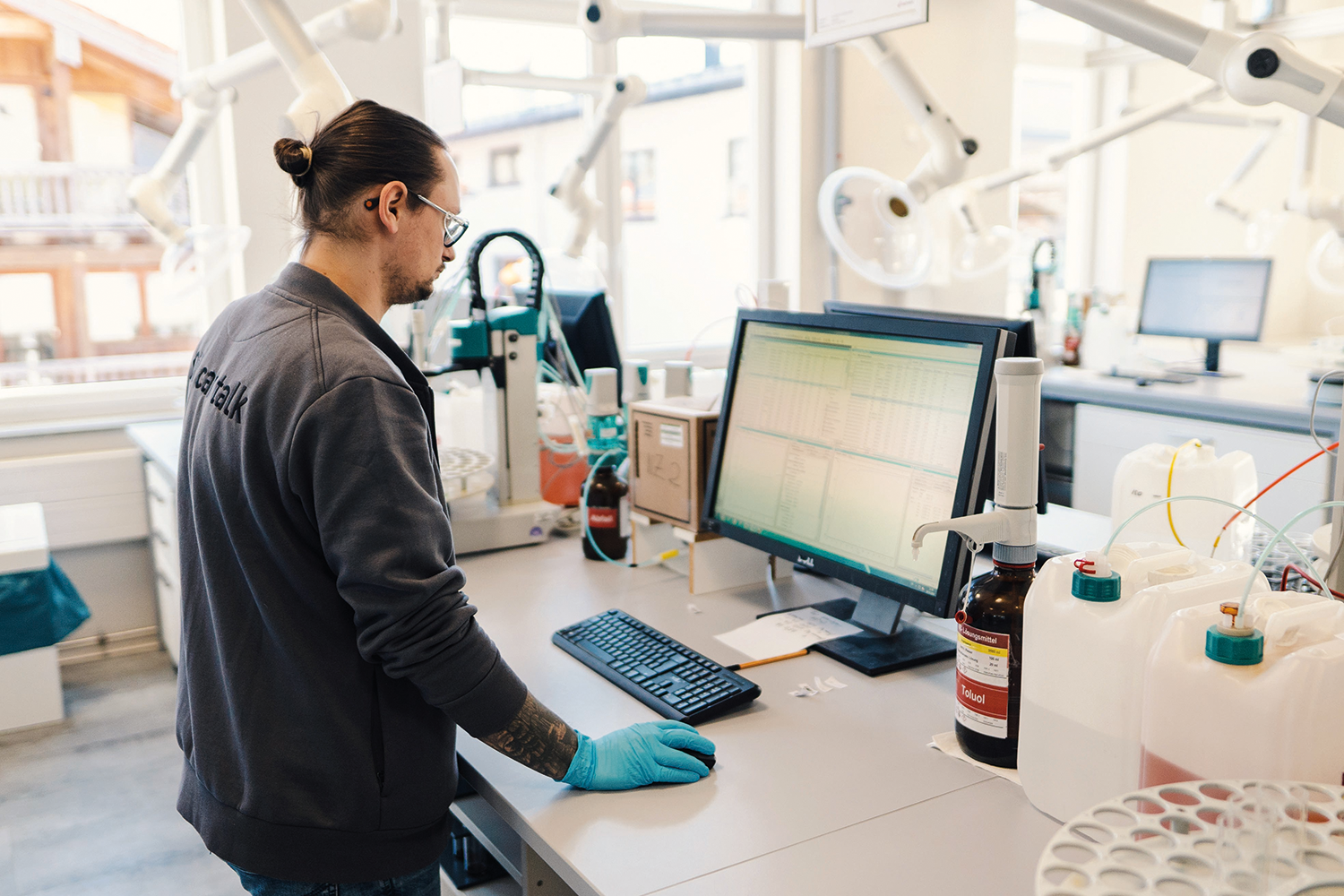The 20 titrators are mainly used to determine the base number (BN), acid number (AN) and water determination by means of Karl Fischer titration. The two Excellence T7 titrators are specialised in the measurement of the i-pH value (initial pH value). This is an important parameter for oils from gas engines that are operated with biogas, biomethane, sewage gas or landfill gas, among other things. Gas engine oils are often so heavily loaded with acids that they can no longer neutralise them sufficiently and therefore cannot protect the engine from their attacks.
Apart from the base number (BN) and acid number (AN), OELCHECK therefore determines the i-pH value of these oils. It provides crucial additional information about their acid load.
The AN specifies the quantity of acids in the oil that are produced during engine operation and increase over time. The BN provides information on whether alkaline active ingredients are still present in the engine oil in order to be able to neutralise acids that have formed. In the case of gas engine oils, the acid-base balance must be considered particularly closely. Even if the BN shows that alkaline active ingredients are still present in the gas engine oil, it may have already been enriched with acids, which primarily come from burning the impurities of the gases.
The i-pH value proves even more accurately the exposure of a used oil to strong and therefore corrosive acids. Even the smallest acid quantities can lead to a measurable reduction of the i-pH value, even if the value of the AN has not yet increased significantly. On the other hand, an increased acid number can be alarming in itself, while only a small change in the i-pH value demonstrates that it is predominantly weak acids which are less corrosive.
Safety in a three-pack: By determining the BN (base number), AN (acid number) and i-pH value, OELCHECK analyses provide precise information on the acid-base balance of gas engine oils.


